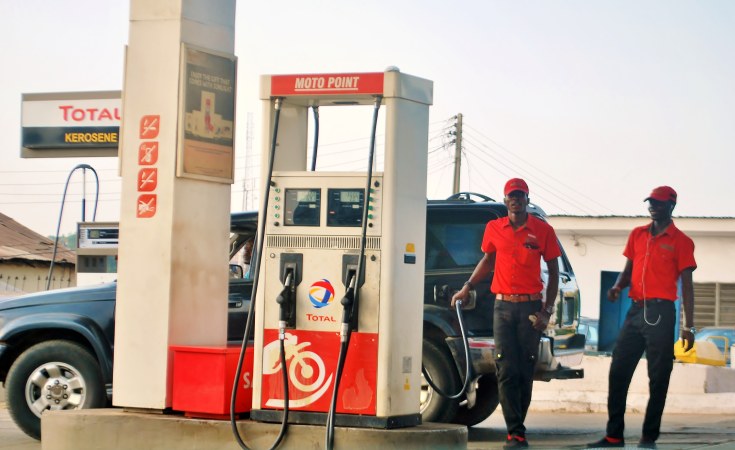GOING by media reports, the Federal Government of Nigeria has concluded plans to make a digital transfer of N8000 to over 12 million low-income earners in Nigeria to help cushion the effect of subsidy removal which has seen prices of commodities triple in recent weeks. It was gathered that when completed, the exercise would have a multiplier effect on about 60 million individuals.
Essentially, the purpose of this piece is not to illogically criticise the policy but to objectively understand the basic reason(s) that informed the policy and what made it seem attractive to the Federal Government; and possibly challenge those 'fundamental' assumptions. Without doubt, the decision looks good peripherally -particularly with Mr. President's claim that for credibility, the money will be transferred to the households digitally.
Beyond this pedestrian attribute, there is everything wrong with the current move by the current administration in the country. Aside from the fact that Nigerians with development mindset had in the past expressed concern that it is not right for state and federal governments of Nigeria to create agencies or come up with policies that 'dole' out money of any kind or sum to Nigerians with the aim of eradicating poverty, as such huge resources do not have economic value. The current move by the President Bola Ahmed Tinubu-led Federal Government to distribute N8000 to poor Nigerians, perfectly aligns with the time honoured adage of 'robbing Peter to Pay Paul'.
For reasons that will be explained in subsequent paragraphs, the present decision more than anything else supports the belief that as a nation, we are poor not because of our geographical location or as a result of lack of mineral resources but predominantly because our leaders make policies that engender poverty and promote helplessness among its citizens.
The facts are there and speak for themselves. Why is the Nigerian government notorious for borrowing to fund consumption that is neither productive nor sustainable? Are we unmindful as a nation that no society, state or country becomes great by living on borrowed funds? Is the Federal Government ignorant that 'killing the strong cannot make the weak strong? Instead of borrowing to fund the poor, why not search and discover the major flaw in the nation's economy and other fundamental challenges that keep Nigerians poor and have such challenges solved?
Who are these 12 million low-income Nigerians? Where are their addresses? How were they selected? Who generated or stored their personal data/information? The truth is that today, if there is anything that Nigerians wish the Federal Government to accomplish quickly, it is not disbursement of paltry N8000 that cannot pay house rent for the urban poor or school fees for the children of the poor fishermen in the riverine communities in the Niger Delta region. Rather, what Nigeria and Nigerians currently need is for the Federal Government to restart the economy, get the refineries functioning optimally as well as make the NNPCL more accountable to the people.
As an incentive to this demand, President Tinubu could recall and attest to the fact that one of the popular demands during the fuel subsidy removal protest in January 2012, under President Goodluck Ebele Jonathan's administration, was that the Federal Government should take measures to strengthen corporate governance in the Nigerian National Petroleum Corporation, NNPC, as well as in the oil and gas sector as a whole. This is because of the belief that weak structures made it possible for the endemic corruption in the management of both the downstream and upstream sectors of the oil and gas industry.
Eleven years after such a demand was made and Jonathan gone, the three government-owned refineries in the country have not been able to function at full capacity as promised by the present administration for a myriad of reasons that revolve around corruption. In fact, it is so bad currently that if the failures recorded by NNPCL under President Jonathan were a challenge, what is going on now is a crisis.
Again, considering the slow growing economy and the attendant scary unemployment levels in the country, instead of paying the paltry N8000 to the poor for a very short period of six months, the Federal Government should have been better appreciated by Nigerians if such an amount is invested in the agriculture sector or used in building industries and factories of production to create employment opportunity for these poor and vulnerable Nigerians?
Is the current administration unaware that it will be difficult accelerating the economic life cycle of the nation until they contemplate industrialisation, or productive collaboration with private organisations that have surplus capital to create employment?
I believe that in many ways, the present administration may have a sincere desire to move poor Nigerians out of the harsh socioeconomic basement, a critical analysis of the present action by the Federal Government regrettably postures it as a plan embarked on without adequate feasibility study.
Indeed, I am of the opinion that the Federal Government must abandon this unclear process of empowering her people and in its place, come up with more people- focused policies that connect the poor with good means of livelihood- food, job and security. The masses will also appreciate the President and his handlers developing/implementing plans and policies that will lead to price stability, high employment, effective regulation, trade and availability of finance for business. This is the only possible explanation to what Nigerians currently need.
Thus, if the process/policy is allowed, it will, in my view, translate to a palliative that cures the effect of a sickness while leaving the root cause to thrive. God bless Nigeria!
Utomi is a Programme Coordinator (Media and Policy) at Social and Economic Justice Advocacy, SEJA


